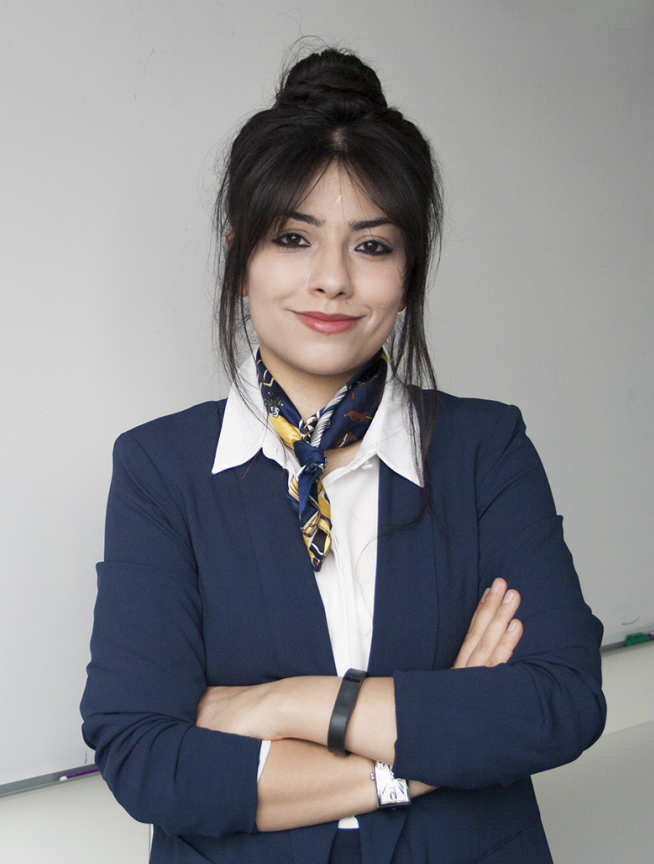
Dr Azalea Raad (MEng in Computing, 2010 and PhD in Computing, 2016) is a Lecturer at Imperial College London working on new and exciting ideas in theoretical computer science and software verification. Following her PhD, Azalea accepted a postdoctoral research position at the Max Planck Institute for Software Systems in Kaiserslautern, Germany where she carried out her own original and successful research. To follow Azalea's research story head to our Staff pages!
Tell us about your time at Imperial
"Studying at Imperial was a transformative experience. The first year of being a Computing undergraduate is truly magical -so many new ideas, new ways of thinking, new possible paths to follow, opening up to you. It was a fun journey of discovery, finding new things I was interested in, learning about things I might want to spend the rest of my life doing. Every year studying Computing has its own unique focus that takes you another step along the journey: the second year is full of engineering and practical milestones, the third year is all about learning to work with others and the first experience of industry, and the final year is about charting your own path to the edges of the field. Each year was special for its own unique set of reasons."
Why did you choose to study at Imperial?
"Imperial always stood out not only because of its status as one of the best universities in the world but also because of its position in one of the most amazing cities in the world. When I visited Imperial, I was won over by the passion and strength of its research staff. Everyone was so enthusiastic, and such widespread research areas were represented. I also appreciated the number of female researchers on staff, especially in senior positions. This made Imperial feel like a modern, forward-looking place to study. It was a chance not only to get a top-class education but also to be surrounded by modern technology companies, global conferences and events, in a vibrant bustling city."
Can you tell us what you’ve done since Graduation?
"After my Masters, I stayed at Imperial to do a PhD so I could pursue a career in research. It was an amazing experience - getting a chance to dive deep into a subject you really care about and contribute to a field is so rewarding. After I wrote my thesis and graduated, I accepted a postdoctoral research position at the Max Planck Institute for Software Systems in Kaiserslautern, Germany. That is where I am now, doing original research and working on new and exciting ideas in theoretical computer science and software verification. However, my story at Imperial is not done; I have just accepted a lectureship in the Department of Computing, and I will be coming back to Imperial soon to continue my research there!"
How has what you learnt at Imperial helped you in your career so far?
"My time at Imperial taught me so many things, but what I am grateful for every day is the ability to be flexible and reactive to new ideas. As a researcher, it is my job to survey the bleeding edge of computer science and to play a role in shaping and directing it. That means I am constantly learning about new things, whether it is an experimental hardware development from the industry, a new theoretical framework from some researchers, or just a useful tool that helps me organise my code! My education at Imperial did not tie me to any technology or way of thinking; it gave me the flexibility to adapt to new situations, to learn new practices quickly, and to keep an open mind about doing things differently, something that is so vital in such a fast-paced field."
Do you have any advice for current Imperial students?
"One of the most amazing resources Imperial has to offer is its people. The research staff, from PhD students up to professors, are some of the most incredible people in the world. Being taught by them, seeking out their advice in office hours, working with them on summer research internships or individual projects -these are all things that open up new ideas and opportunities and can change the course of your whole life. I strongly encourage students to take every opportunity to build relationships and get to know everyone around them at Imperial, at all levels of experience and in all areas of expertise. These are links that can help you throughout the rest of your life, long after you have graduated."
Azalea's advice for current students
"One of the most amazing resources Imperial has to offer is its people. The research staff, from PhD students up to professors, are some of the most incredible people in the world. Being taught by them, seeking out their advice in office hours, working with them on summer research internships or individual projects - these are all things that open up new ideas and opportunities, and can change the course of your whole life."
